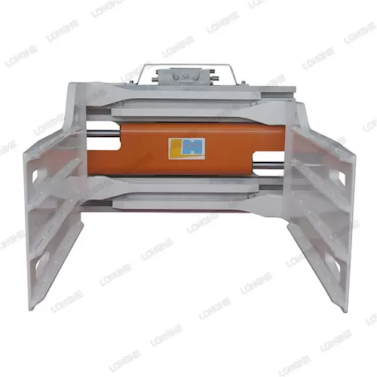Streamlining Efficiency in Material Handling: The Power of Bale Clamps
In the realm of material handling, bale clamps play a pivotal role in optimizing efficiency and productivity. Specifically designed to handle bales of various materials, such as hay, cotton, and paper, bale clamps provide a secure and reliable grip for transporting and stacking these bulky loads. This article explores the benefits and applications of standard bale clamps in streamlining material handling operations across diverse industries.
1. Secure and Versatile Gripping
Bale clamps are engineered with robust arms and specialized gripping surfaces that securely hold bales during lifting and transportation. These clamps provide a reliable grip, ensuring that the load remains stable and intact throughout the handling process. Additionally, bale clamps come in a range of designs and configurations, allowing them to handle different types and sizes of bales, enhancing their versatility for various industries.
2. Increased Efficiency and Productivity
By utilizing bale clamps, material handling operations can significantly enhance their efficiency and productivity. The ability to securely grip and transport multiple bales at once reduces the number of trips required, minimizing downtime and maximizing productivity. Bale clamps enable quick and efficient loading and unloading, streamlining operations and reducing labor costs associated with manual handling.
3. Reduced Damage and Loss
The secure grip provided by bale clamps minimizes the risk of damage and loss during transportation and stacking. Bales are held firmly in place, reducing the likelihood of shifting or falling during handling. This ensures the preservation of the bale's structural integrity and prevents damage to the materials contained within. By minimizing damage and loss, businesses can save costs and maintain the quality of their products.
4. Versatile Applications
Bale clamps find applications in a wide range of industries that deal with bales of various materials. In agriculture, bale clamps are essential for efficiently handling hay, straw, and silage bales. They are also commonly used in the paper industry to move and stack large rolls of paper. Furthermore, bale clamps are utilized in recycling facilities to handle compressed bales of materials like plastic, cardboard, and textiles. The versatility of bale clamps makes them indispensable in industries that rely on the efficient handling of bulky loads.
5. Improved Safety
Bale clamps enhance safety in material handling operations by reducing the risks associated with manual lifting and moving of heavy bales. With bale clamps, operators can handle bales from a safe distance using forklifts or other equipment. This minimizes the chances of workplace injuries, strains, and accidents, promoting a safer working environment for employees.
6. Cost-Effective Solution
Implementing bale clamps can lead to cost savings in material handling operations. The increased efficiency and productivity achieved through the use of bale clamps reduce labor requirements, saving time and resources. Additionally, the prevention of damage and loss during handling minimizes financial losses associated with damaged or unusable bales. Over time, the cost-effectiveness of bale clamps translates into improved profitability and a competitive edge for businesses.
Conclusion
Bale clamps have revolutionized material handling operations by providing a secure, efficient, and versatile solution for transporting and stacking bales. Their ability to securely grip and transport bulky loads reduces damage and loss while enhancing productivity and safety. From the agricultural and paper industries to recycling facilities, bale clamps have become indispensable tools that streamline operations and optimize efficiency. By harnessing the power of Roll Clamp, businesses can enhance their material handling processes, reduce costs, and elevate overall productivity.



评论
发表评论